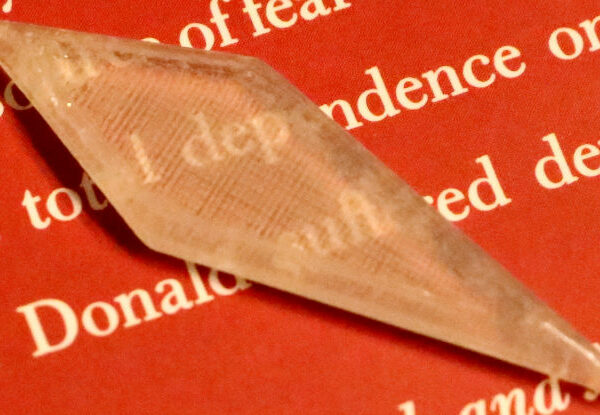Drying clear or transparent filaments
I dry my filament in a commercial filament dryer, then store in a polypropylene airtight container (there may be some leakage around the filament port). The humidity readout is consistently ~10% for PETG & PLA (over a 2 month period), except when I dry and store "Clear" or "Transparent" filaments such as Future Forma HD Glass or Prusa Clear PETG, or Taulman T-Glase, in which case the humidity readout is invariably ~18-20% after drying for the recommended amount of time. It will hold this humidity value for around 2 months (the humidity level where I live is usually 45 - 50%).
Is this something I should be concerned over, or is this a common property of these types of clear/transparent filaments?
Thanks for any advice.
RE: Drying clear or transparent filaments
I do not use a commercial filament dryer, but I often dry filaments in a Ninja Cooker set on dehydrate mode.
I've noticed no difference between so-called transparent filaments and more pigmented filaments WRT drying time or results.
Some do claim that filaments with different pigments (or lack of same) perform and print differently (I've heard this about both white and black filaments) but again, I've noticed very little, if any, difference between how different colored filaments print.
RE: Drying clear or transparent filaments
Thanks for your help. I have also tried Geeetech Clear PLA with the same result, around 20% after drying overnight at 55 deg C while simultaneously drying a Prusa Green PLA which results in a 10% humidity value while in storage.
If you mean 'How do I print transparent parts':
https://blog.prusa3d.com/3d-printed-lens-and-other-transparent-objects_31231/
Cheerio,
RE: Drying clear or transparent filaments
I have yet to see, as in hold in my hand and look through it, a 3d printed part using any of the common so-called transparent filaments that is truly transparent like many of the alleged examples that are posted on the web.
My needs have been more for translucency, where light will pass but detail will not, such as windows for model railroad buildings.
There are some threads here where others have posted examples of somewhat-transparent items, but I don't remember any that were truly glass-like transparent. I do remember a couple where printed text is readable through the objects, but the 'strokes' of the 3d printing process are visible.
You might look at this recent 'print': https://www.printables.com/social/32203-eb/collections/9114
Cheerio,
RE: Drying clear or transparent filaments
This is pretty impressive
You might look at this recent 'print': https://www.printables.com/social/32203-eb/collections/9114
Cheerio,
RE: Drying clear or transparent filaments
This is about as good as I can get, earring pendant, smoothed in acetone in a jar. Also had fair luck dipping a soft mop brush in acetone and gently teasing the surfaces.
Not to be Debbie Downer here, but I really question those clear as glass prints that were supposedly done on these printers. They just don't pass the smell test. Those have to be meticulously sanded and polished.
RE: Drying clear or transparent filaments
Sanding and polishing is not going to cut it, the cloudiness is internal. I have been experimenting a little with this, and I think you can get pretty clear prints on thinner objects. As per another post I changed a few things from default PETG:
- Speed 20 m/s
- Layer height 0.1
- No top / bottom layes
- Cooling off
- Aligned rectalinear infill, 100%
This gave me a part that was more transparent than the default settings, but by no means see-through.
I just tried printing the same part with Ironing enabled on all surfaces. The print time went from under 1 hour to over 10, and I had to stop it halfway through, but... the first part was pretty much clear as those impressive parts in the screenshots posted in that Printables link, and with no post processing done on it.
However the part seemed rather melty... with no cooling and high bed temperature it had time to sag a little. But this was a pretty thick part, I think smaller parts like window panes or aircraft canopies could come out nicely. I'm happy to give it a shot and post results if anyone's interested.
